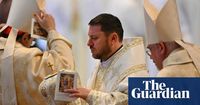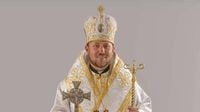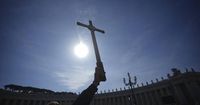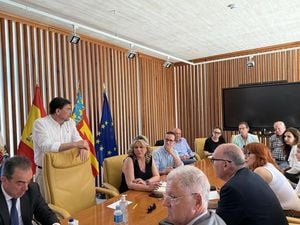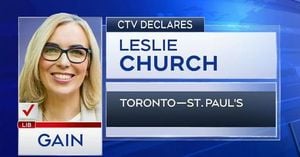The papal conclave, the group of eligible cardinals electing the next head of the Catholic Church, will remain confined in the city-state until the next pope has been chosen by secret ballot. According to Associate Professor Darius von Guttner from Australian Catholic University, "They swear an oath not to tell anyone about the proceedings; they swear an oath to be guided by their conscience and their faith and prayer alone, without taking account of any external influence." He added, "The mystical and political come together in the conclave in the ultimately very human and supposedly divinely-inspired moment."
Among the cardinals participating in this conclave is Melbourne-based Cardinal Mykola Bychok, who is expected to join as the youngest member of the College of Cardinals at just 45 years old. Appointed by Pope Francis in December 2024, Bychok is the Eparch of the Ukrainian Greek-Catholic Church in Australia and Oceania. His election as a religious leader from war-torn Ukraine would be "enormously powerful," according to von Guttner, who noted that this would send a strong political message to the Catholic community worldwide.
The conclave traditionally gathers in the Vatican City's Sistine Chapel around 15 to 20 days after the death of a pope to elect the next sovereign of the Holy See. The rules governing the process have evolved over 2000 years, with the most recent amendments made by Pope John Paul II and Pope Benedict XVI. A secret ballot is held repeatedly until one cardinal receives two-thirds or more of the vote. According to von Guttner, "This ensures that the person elected will command the support of his colleagues." On the first day, the cardinals take one vote in the afternoon, followed by four votes on each subsequent day.
Black smoke is released after each unsuccessful vote to indicate to the waiting crowds that a new pope has not yet been selected, while white smoke signals that a new pope has been chosen. Once a new pope is confirmed after receiving a two-thirds majority vote, they must accept the election and choose a papal name, which reflects their vision for their papacy. However, it is unlikely that the name Peter will be chosen due to a prophecy predicting that Peter will be the final Pope before the end of the earth.
Bychok's elevation to cardinal is a significant milestone, as he is the first Australian cardinal since the late George Pell and only the eighth in the nation’s history. Born in Ternopil, Ukraine, Bychok entered a monastery after high school and was ordained in Lviv. He has served as a priest in countries including Poland and the United States before moving to Melbourne in January 2020 to lead the Eparch of Saints Peter and Paul of Melbourne.
His installation as cardinal was celebrated by Catholics both in Australia and Ukraine. Bychok expressed his gratitude during the ceremony, recalling how Pope Francis spoke to him in Ukrainian, saying, "Glory be to Jesus Christ." This moment was significant for him, as he noted, "It was a very great moment for me, of support."
Since Russia’s invasion of Ukraine in 2022, Bychok has been a vocal advocate for his homeland. He described the situation as "really a genocide of our people because Russia is in war mode, with army, with soldiers, and they are killing our people." In an Easter letter sent to congregants, he urged Catholics to seek comfort from God amidst the ongoing conflict, stating, "We cannot celebrate [Easter] this year without turning our thoughts and prayers to our suffering homeland of Ukraine. The war continues to bring devastation, pain, and heartbreak."
Bychok's message was one of hope, emphasizing the power of love and mercy over hate and vengeance. He quoted Pope Saint John Paul II, saying, "Do not abandon yourselves to despair," and expressed a desire for this Easter to herald "a new beginning" for his people.
As the conclave approaches, the eyes of the world will be on the cardinals, especially on Bychok, who carries the weight of his country’s struggles into the sacred space of the Vatican. The election of a Ukrainian cardinal would not only be a historic moment for the Catholic Church but also a poignant reminder of the resilience and faith of those suffering in Ukraine.
In the coming weeks, as the conclave deliberates behind closed doors, Bychok and his fellow cardinals will have the monumental task of choosing a leader who can unite a diverse and often divided global church. The new pope will need to extend arms to everyone, embracing all faithful regardless of their backgrounds or beliefs, as they navigate the complexities of modern-day challenges.
